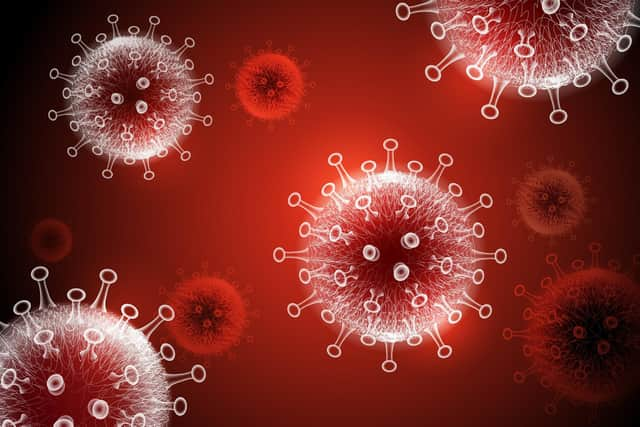Coronavirus: 'Emerging evidence' Covid-19 can spread through airborne transmission, WHO says
and live on Freeview channel 276
Professor Benedetta Allegranzi, technical lead for infection prevention and control, said the possibility of airborne transmission in ‘crowded, closed, poorly ventilated’ settings could not be ruled out.
It comes after more than 200 scientists wrote an open letter to the agency urging officials to recognise the possibility of airborne transmission of the virus.
Advertisement
Hide AdAdvertisement
Hide AdCurrent guidelines from the WHO focus on the virus being spread primarily through droplets from the nose or mouth, which are expelled when an infected person coughs, sneezes or speaks.


The Geneva-based agency advises precautions to avoid these droplets, such as social distancing and regular hand washing.
Published in the Clinical Infectious Diseases journal, the letter's signatories call on health officials to update guidance to include measures which would mitigate the risk of airborne transmission.
The group of 239 experts outline studies which they say suggests coronavirus can spread through smaller particles that linger in the air.
Advertisement
Hide AdAdvertisement
Hide AdWhile hand washing and social distancing are appropriate, the signatories say these measures are ‘insufficient’ in providing protection from ‘virus-carrying respiratory microdroplets’ released into the air by those with Covid-19.
According to the group, measures that should be taken include providing sufficient ventilation, to minimise recirculating air, and avoiding overcrowding, particularly on public transport.
When asked about the letter during a press briefing on Tuesday, Prof Allegranzi said officials had been in discussions with the letter's signatories.
Advertisement
Hide AdAdvertisement
Hide Ad‘We acknowledge that there is emerging evidence in this field, as in all other fields, regarding the Covid-19 virus and pandemic,’ she told reporters.
‘And therefore, we believe that we have to be open to this evidence and understand its implications regarding the modes of transmission, and also regarding the precautions that need to be taken.’
She added that while airborne transmission could not be ruled out in certain conditions, the evidence was not ‘definitive’ and needed to continue to be gathered.
Dr David Nabarro, a special envoy to the WHO on Covid-19, said that while airborne transmission was ‘certainly part of the puzzle’, it is not the main route of transmission.
Advertisement
Hide AdAdvertisement
Hide Ad‘The major way in which that this virus is transmitted is through droplets which come out when you cough, sneeze or even shout," he told the BBC Radio 4 Today programme
‘But there does seem to be the possibility that very small particles containing virus can move further.
‘It is certainly part of the puzzle. The key question is just how important is it.
‘Right now we think it is not the major means of transmission. The major means of transmission is droplets, which is why we talk about one to two metres distance as being the key thing to avoid spread.’
Thank you for reading this story. The dramatic events of 2020 are having a major impact on our advertisers and thus our revenues.
The News is more reliant than ever on you taking out a digital subscription to support our journalism. You can subscribe here for unlimited access to Portsmouth news and information online.
Every subscription helps us continue providing trusted, local journalism and campaign on your behalf for our city.
Comment Guidelines
National World encourages reader discussion on our stories. User feedback, insights and back-and-forth exchanges add a rich layer of context to reporting. Please review our Community Guidelines before commenting.